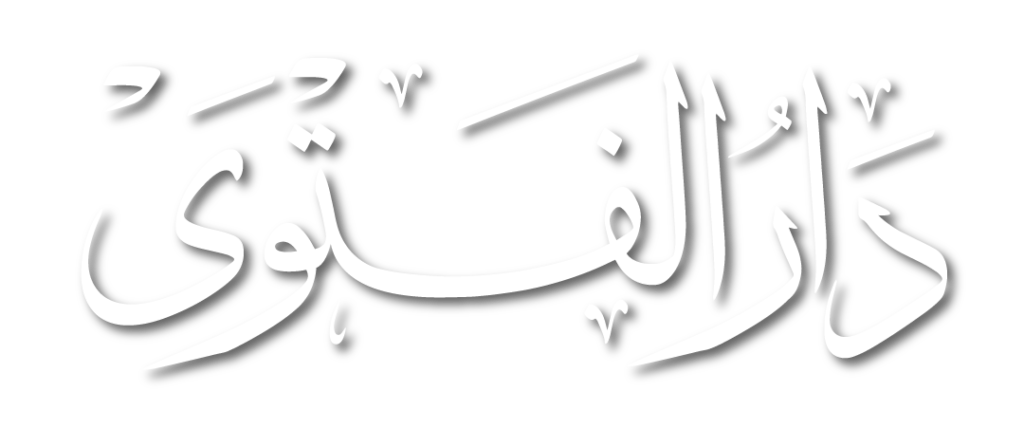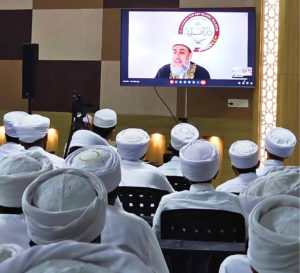Prohibitions
1.To use perfume:
It is sinful for the man or woman to use perfume after entering into the state of ihram, although, it is sunnah to do so prior to entering this state.
Lady ^A’ishah reported that she used to put perfume for the Prophet before he made the intention to enter into the actions of Hajj and after he finished them. Using perfume means to put on the body, hair, or clothes, or to eat anything usually sought by the people for its good smell, like musk, sandalwood, rose oil, and the like. However, there are certain things which have a good smell, but are not considered perfumes. Examples are apples and cinnamon. These are edible.
Carrying perfume on one’s person without wearing it is not sinful. Carrying a rose is not sinful. However, letting it touch one’s nose while smelling it is not permissible. Committing this prohibition requires an expiation.
The expiation due for using scented products is either to slaughter a sheep and distribute its meat to the poor people of Makkah, or to distribute three (3) sa^s (of wheat) to six (6) poor people (such that each receives one-half sa^, i.e., two (2) mudds), or to fast three (3) days.One has the choice to do any of the three matters.
2. To anoint the head or beard with oil, grease, melted honey wax, or the like:
It is prohibited to anoint the head (the hair of the head) or beard with anything which might be called duhn (oils). It is not prohibited to rub unscented oils into the body or body hair, bald head, or face. The expiation due here is the same as for using perfumes.
3. To remove fingernails, toenails, or hair:
It is forbidden when in the state of ihram to remove fingernails or toenails or any hair whether this is by pulling them out, cutting them off, or otherwise. There is no sin or expiation due if one’s hair falls out by itself, not as a result of one’s own action. The expiation due here is the same as for using perfumes.
4. For the man, to cover his head:
The man is prohibited from covering his head or part of his head in Hajj with anything which is considered in the norm as a cover, even if it shows the color of his hair. A thin string or band is not considered normally as a cover for the head, nor is one’s hand. Holding an umbrella over one’s head is not considered an unlawful covering of the head, because in the norm an umbrella is not a head cover. The expiation due here is the same as for using perfumes.
5. For the woman to cover her face or wear gloves:
The woman in Hajj is prohibited from covering her face with anything that touches her skin. If she can manage to cover her face without having any cover actually touching her skin, it is not prohibited, and this is what the wives of the Prophet used to do because it was unlawful specifically for them to uncover their faces in the presence of marriageable men (ajnabiyys). Moreoever, the woman is prohibited from wearing gloves, although wearing long sleeves which cover her hands is not prohibited. The expiation due here is the same as for using perfumes.
6. For the man to wear clothes which are designed to surround the body via sewing or felting:
The man is prohibited to wear clothes meant to surround the body via sewing or felting. Rather, the man covers his ^awrah by using a wrap-around (an izar or the like). Also, he does not wear shoes that are sewn to give them the shape to fit the foot, rather he wears shoes that show the toes and the back of the feet. The man may put a belt on to hold up his clothing or carry his sword. The expiation due here is the same as for using perfumes.
7. Sexual intercourse or its inviting actions:
It is prohibited for the muhrim to perform sexual intercourse or its inviting actions, while in the state of ihram. If the man was in the state of ihram, and his wife was not, it is forbidden for her to enable her husband to have sexual intercourse with her, or any of its inviting actions. The inviting actions are like the kiss which involves desire, looking with lust, or touching with desire. Performing sexual intercourse before the first tahallul invalidates one’s Hajj. Although one’s Hajj is invalidated, one must continue with the actions of Hajj, pay a kaffarah expiation, and re-perform the Hajj immediately the next year, if one is able. If one is not able, the re-performance of the Hajj will be an obligation whenever one is able until one completes it. The kaffarah due on the one who invalidated one’s Hajj by sexual intercourse is to slaughter a camel and distribute its meat to the poor people of Makkah. If one cannot find a camel, then one slaughters a cow. If one cannot find a cow, then one slaughters seven (7) sheep. If one cannot, one distributes mudds of wheat equaling the value of the camel to the poor people of Makkah. If one cannot, one fasts one day for each mudd-value of the camel.
If one performs sexual intercourse after the first tahallul, one is sinful and an expiation (of using perfumes) is due, however, one’s Hajj is not invalidated. The first tahallul occurs after one completes two (2) of three (3) matters:
- the obligatory tawaf.
- shaving the head or trimming the hair.
- throwing the pebbles at Jamratul-^Aqabah.
The lustful look is sinful, but it does not require an expiation.
Similarly, it is not permissible to conduct a marriage contract for anyone in the state of ihram, whether for oneself or others. If performed, this marriage contract is not valid, however, no expiation is due.
8. To hunt an edible, wild, land animal:
It is prohibited for the muhrim to hunt the edible, wild land animal. However, the domesticated animal (like a sheep) which became wild is permissible to kill. Catching marine life is not prohibited, nor is it prohibited to kill the harmful animals like the snake, scorpion, etc.
The expiation due for killing the edible, wild, land animal is to slaughter whichever is most similar in form to the land killed animal from either a camel, cow, sheep, or goat.
The meat is distributed to the poor people in Makkah, or the value of the animal which one needs to slaughter is paid in mudds of wheat to the poor people of Makkah, or one day is fasted for each mudd-value of the animal.
Also, it is prohibited to take the milk, egg, feather, or hair of the edible, wild, land animal while muhrim. The expiation due on the one who does so is to pay, in wheat, the value of what one took to the poor people of Makkah. Hunting in the two specific zones surrounding Makkah and al-Madinah is unlawful for the muhrim and the non-muhrim.
The borders of al-Madinah are the two mountains: Mount ^Ayr and Mount Thawr. The borders of Makkah are well-known and were defined clearly by Prophet Ibrahim. It is prohibited to hunt any wild, edible, land animal inside those borders. It is also prohibited to cut or pull out the trees and plants of Makkah, al-Madinah, and Wajj valley in Ta’if.
An expiation is due on the one who hunts the wild, edible, land animals or pulls the plants of Makkah.
The Expiation Chart for Prohibitions
| Prohibitions While in the State of Ihram | Expiation Due if Committed |
|
To correct for committing any one of these seven (7) matters, one has the choice to do one of the following three things: 1. To slaughter a sheep. 2. To distribute three (3) sa^s to six (6) people (each one gets one-half sa^) 3. To fast three (3) days. |
| 8. To hunt an edible, wild, land animal. (If one takes the milk, egg, feather, or hair of such animal, one has to pay its value in wheat to the poor people of Makkah.) |
To correct for committing this matter one has the choice to do one of the following three things: 1. To slaughter whichever is most similar in form to the animal hunted-either a camel, cow, sheep, or goat and to distribute the meat to the poor people in Makkah. 2. To pay the value of the animal which should be slaughtered in mudds of wheat to the poor people of Makkah. 3. To fast one day for each mudd-value of the animal |
| 9. Conducting a marriage contract, and the lustful look. Such marriage contract is INVALID. The person is sinful. |
NO EXPIATION IS DUE. |
| 10. Sexual intercourse before the 1st tahallul.** |
If the person commits such a matter, his Hajj is invalidated, although he must continue with its actions. He must make the Hajj up the next year. Moreover, he pays a camel. If he cannot find a camel, then a cow, and if he cannot then seven (7) sheep. If he cannot find any of these animals to pay, then he pays an amount of wheat equal to the value of the camel to the poor people in Makkah, or else, He fasts one day for each mudd-value of the camel. |





